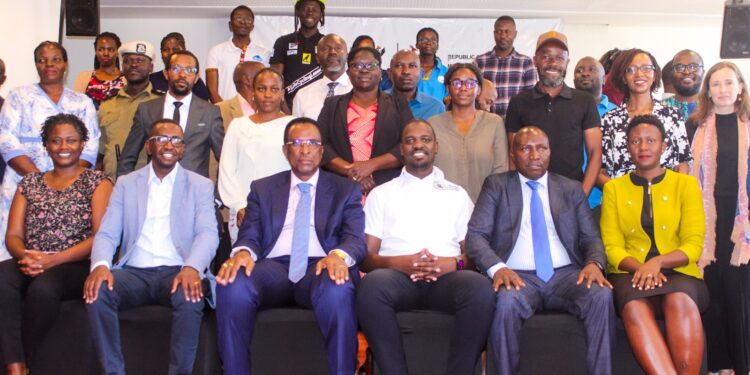Stakeholders in the transport sector have called for accelerated adoption of sustainable transport solutions in Kampala, emphasizing the critical role of technology in reducing emissions and improving air quality.
Speaking at the Green Mobility Stakeholders Forum held in Kampala, Winstone Katushabe, Commissioner for Transport Regulation and Safety at the Ministry of Works and Transport, noted that transport is among the drivers of air pollution and greenhouse emissions globally, including Kampala.
“Transportation is the dominant cause of air pollution and greenhouse emissions in major cities globally, including Kampala. We need collaborative engagements on sustainable mobility solutions that bring together key stakeholders to explore actionable strategies,” Katushabe said.
Katushabe noted that decisions made using technology are faster and efficient.
“We need such kind of technology to address issues of pollution, issues of emissions in cities like Kampala. We are saying, if we are to deal with this climate change, if we want to do away with some of these floods you see around Kampala, then we must embrace green mobility,” he said.
According to research conducted by AirQo during the COVID-19 lockdown, air pollution (PM2.5) levels in Kampala dropped by up to 50% due to reduced transportation activities. This highlights the critical role transportation plays in air pollution and urban emissions.
Professor Engineer Bainomugisha, AirQo Project Lead, emphasized the urgent need for sustainable mobility solutions. “Access to data-driven insights will enable authorities to prioritize sustainable mobility options, such as mass transport, non-motorized alternatives, and incentives for better vehicle maintenance practices, to create cleaner, healthier urban spaces.”
The AirQo Project has designed and built an autonomous technology solution that captures traffic data through imaging.
Supported by Arm, the vehicle emissions estimation system. This innovation is expected to improve understanding of the scale and magnitude of vehicle emissions in Kampala City.
The Uganda Bureau of Statistics reported a 7.9% increase in newly registered motor vehicles and motorcycles in 2022, underscoring the pressing need for effective emission control measures.
Road safety activist Joseph Bayenga called for improved transport infrastructure ensuring safety for all road users. “We want infrastructure that reduces and manages vehicles entering and exiting the city. Green mobility is showing us the magnitude of the problem, and it’s a call to action for all stakeholders.”
The Green Mobility Stakeholders Forum was organized by the Ministry of Works and Transport, AirQo Project, and Makerere University to discuss pathways for reducing transportation-related emissions and improving air quality.
“By embracing sustainable transport solutions and technology-driven innovations, Kampala aims to reduce emissions, improve air quality, and create a healthier urban environment for its citizens,” said Prof Bainomugisha.











